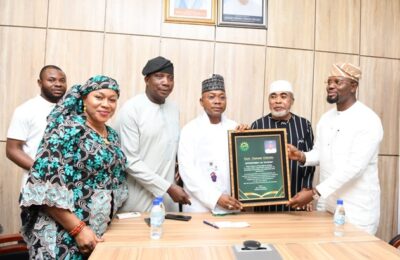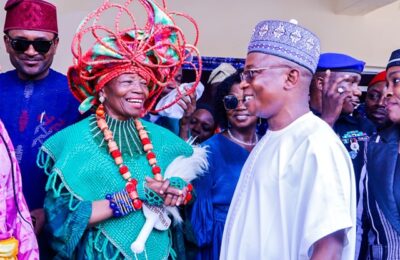By Hon. Musa Bakare
President Bola Ahmed Tinubu’s administration has emphasized industrial development as a key component of its renewed agenda for Nigeria. The iron and steel sector is critical to this agenda. The strategic establishment of the Ministry of Steel Development with a core mandate to revitalize and revamp the steel sector, including the planned production initiatives and the appointment of a highly trained Economist and an investment Banker, Prince Shaibu Abubakar Audu the Minister was deliberately meant to boost iron and steel production. The government aims to reduce reliance on imported steel, towards stabilizing foreign exchange reserves and promote local industries.
The iron and steel industry is projected to play pivotal role in Nigeria’s industrial development agenda under President Bola Ahmed Tinubu. Through strategic investments, policy reforms, and a focus on local production, the administration aims to enhance the country’s capacity for steel production, unlock economic growth, drive infrastructure development, create employment opportunities, and position the country as a key player in the world’s industrial landscape.
Iron and steel production has played a pivotal role in the economic growth and industrial development of several countries around the world, Nigeria cannot be an exception. Steel is a crucial material for infrastructure projects such as roads, bridges, housing etc. A complete revitalization of Ajaokuta Steel Industry would support the country’s infrastructural needs and drive economic development.
Historically, the availability of iron and steel was fundamental to the Industrial Revolution and facilitated the development of infrastructure.The massive production of steel helped the United States of America become a leader in manufacturing, leading to job creation and technological advancements.
China’s emergence as the world’s manufacturing powerhouse is largely attributed to its vast iron and steel production, crucial for supporting infrastructure projects like roads, bridges, and high speed rail networks.
After World War II, the steel industry was critical in rebuilding the German economy, leading to the establishment of the Economic Miracle, (Wirtschaftswunder)
German steel production, advanced engineering techniques, reinforcing the country’s position as a leader in mechanical engineering and manufacturing.
Brazil transformed its economy by investing in iron ore and steel production becoming one of the top exporters of iron ore globally and supporting local industry and employment.
The integration of mining and manufacturing sectors has led to significant economic growth.
That President Tinubu administration is prioritizing investments in infrastructure to support the growth of the iron and steel industry through strengthening the Nigeria iron and steel industry, contribute greatly to the broader goal of diversifying Nigeria’s economy which has historically been dependent on oil and gas is highly commendable.
The initiative will support the creation of over 500,000 jobs in the steel industry, positioning Nigeria as a prime investment destination in Africa’s steel sector. Additionally, the administration is focusing on creating incentives and a strategic framework to bolster domestic steel production and reduce reliance on imports.
The revitalized iron and steel industry will involve efforts to utilize local raw materials, such as iron ore and coal, which are abundant in Nigeria. This approach would promote sustainable practices and reduce costs.
Federal Government Investment in education and training programs will focus on metallurgy, engineering and industrial processes and help build a skilled workforce supporting the growth of the sector.
With the Federal Government focusing on steel production, Nigeria will move up the value chain in manufacturing, minimizing the need to import steel and its products. A strong steel industry will provide raw materials for various sectors, including construction, automotive, and manufacturing leading to growth in these industries.
With a robust steel industry, President Tinubu is aiming at positioning Nigeria as a leader in West Africa, Africa and attracting foreign investment, fostering regional economic cooperation, promoting technological innovation and skills development, enhancing her industrial capabilities.
Nigeria is rich in mineral resources, which can feed a domestic steel manufacturing industry. Utilizing local resources promotes sustainability and economic self-sufficiency.
Steel is essential for construction, machinery, automotive, and various manufacturing sectors.
Domestic production of iron and steel helps in reducing import dependency and promotes self-sufficiency in crucial sectors.
Massive production of Steel Industry in the country in the belief of President Tinubu would play a transformative role in Nigeria’s economic landscape, fostering growth, and leading to enhanced industrial capability.
Diversifying the economy beyond oil and enhancing the efficiency and competitiveness of the iron and steel industry is essential for sustainable economic growth and development in Nigeria.
– Hon. Musa Asiru Bakare, member Tinubu Support Group (TSG), writes from Lokoja, Kogi state capital.




